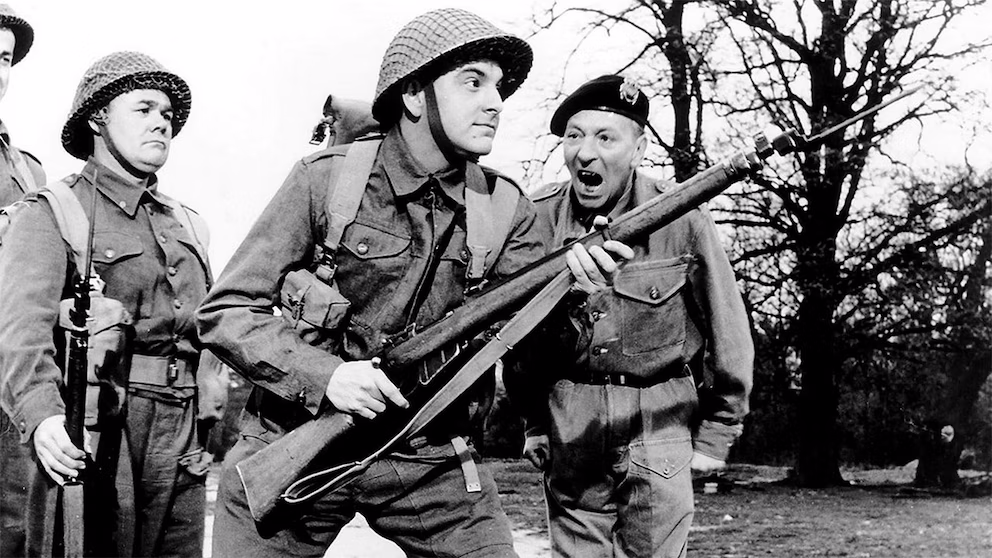There has been a buzz in the press about the potential need for the UK to reintroduce national service due to the increased threats to UK security on the continent of Europe. Wow this will excite certain trotskyists i.e. those who support workers militias, but this is unlikely to happen for two reasons.
It seems that commentators have forgotten the reason the UK abolished national service is that the army no longer wanted the responsibility and cost of turning unwilling volunteers into effective soldiers and this is an even bigger problem in the Air Force and Navy.

Second reason is that this is a problem caused by governments, specifically Tory governments. Cameron’s defence review in 2010 cut all three forces and delayed numerous procurement/re-equipment programmes. We note that Cameron’s 2010 review was so bad, that he had to do another one in 2015. I commented mainly on the nuclear deterrent, but in this article, I argued [and on Medium] that a weak conventional defence makes nuclear escalation more likely and identified significant failings in all three wings of the armed services.
Johnson’s review of 2021 was an attempt to reposition the UK armed forces so better support Johnson’s vison of a post-Brexit global Britain. In shorthand, the Navy won the review with a promise to double the number of non-carrier surface warships over the coming decade. To pay for this the British Army is now the smallest it’s been since Napoleonic time; beyond the manpower statistics this has been shown as its ammunition stores are insufficient to enable the UK to be a constant ally to Ukraine.
For the British Army the last thing it needs is the additional work in training unwilling and often ill-educated recruits.
A lot of factors that have changed the calculations on this. One obvious issue is that conscription after WWII until 1960 was for 18 months. The military now is far more reliant on high tech equipment. Conscripts are going to have trouble operating sonar systems or filling positions in specialist units, logistics, EOD etc. It would be highly inefficient to spend time and money training a person who will leave in under 2 years.
Saying that the increase of performance of the Russian conscripts and reservists in Ukraine is of note. They trained them quite well. They have fielded 300,000+ reservists troops who have improved their performance and whilst a hard fight have now effectively won the war in Ukraine. The forces of Ukraine have been depleted. Approx. 500,000 Ukrainian soldiers have been killed. That has wrecked the experience and skills available whilst the Russian forces have increased mobilisation, got better and showed the ability to learn.
Previously I was less concerned because the spending by NATO is over $1 trillion compared to the $80bn spent by Russia. The Ukraine war has demonstrated that the spending might be lower but the Russian military machine is effective and a certain amount of force multiplier relative to spending appears to exist. NATO might need to look for some major improvements and is complacent about its capacity to beat the Russians on the battlefield.
The other big factor is that the current developing regional conflict in the Middle East has demonstrated that technology has moved things on and some weapon platforms have to an extent demonstrated obsolescence. My view from the start was that the UK Aircraft Carriers were complete white elephants. The Houthi attacks with drones and missiles has shown that a lot of naval vessels are of questionable use. The cost comparison is a serious issue. HMS Diamond is in the Red Sea and has used its Sea Viper missile system to knock out Houthi attacks. That system is 1/3 of the cost of a type 45 Frigate ($187m). The missiles are $1m each. The Houthi drones are in the $5-20,000 cost range. Ultimately to consider Von Clausewitz the military is an aspect of state power. Economic and diplomatic power is also part of achieving national policy objectives. The economic mismatch in costs is going to seriously deteriorate the leverage available to a state from its military force.
The other large elephant in this room is that it is utter nonsense to think we are at risk of Russian attack. There is no interest in Russia in attacking the rest of Europe because we have nothing they particularly want. The whole thing is inverted propaganda designed to create conditions for us to start a war. 20 odd years ago Putin effectively nationalised (in a corrupt way) the ownership of the major mineral wealth of Russia. Europe and the USA has been annoyed about this. The desire has far more to do with the idea of military defeat of Russia to create the opportunity to ‘rape’ their mineral resources than a serious assessment of Putin salivating over invading Europe.
By the way I think Healey is massively out of his depth on all this and the MOD couldn’t find it ass with both hands..
Pingback:National Service, the Tories are not fit custodians of the military – davelevy.info
It seems the speaker was rebukedby Sunak, who seems to have changed is mind over the utility of the Army.